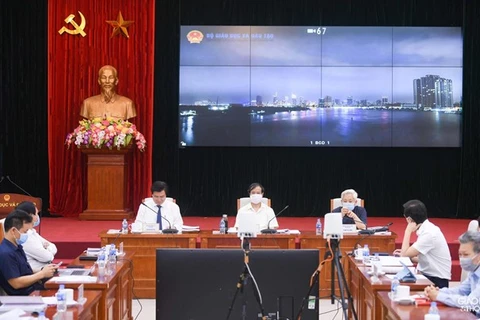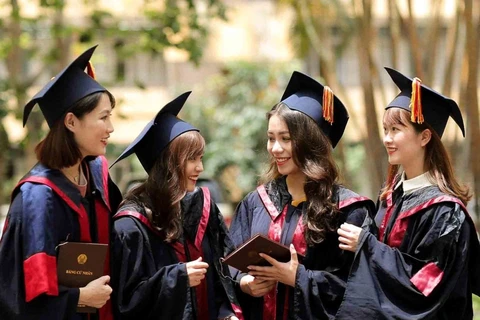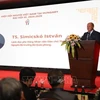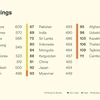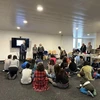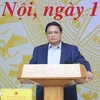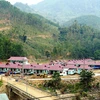Paris (VNA) – Cao Lanh, the capital city of the Mekong Delta province of Dong Thap, has been added to the UNESCO Global Network of Learning Cities (GNLC), raising the number of such cities in Vietnam to five.
Along with 76 cities from 43 other countries, it was officially listed in the GNLC on September 2.
Other Vietnamese cities joining the network, which gathers 294 cities in 76 countries, are Hai Duong and Ho Chi Minh City in 2015, and Sa Dec in the Mekong Delta province of Dong Thap and Vinh in the central province of Nghe An in 2020.
According to Vietnamese Ambassador Le Thi Hong Van, Permanent Representative of Vietnam to UNESCO, in order to deal with emerging challenges and maintain good reading culture, Cao Lanh has introduced many learning software and organised various meetings on education and reading.
The locality has also effectively promoted the role of local students and youngsters in the work, she said.
UNESCO General Director Audrey Azoulay said the newly-recognised learning cities are well-deserved thanks to their excellent expertise and efforts to transform the interests in learning into reality.
The UNESCO Institute for Lifelong Learning, a center for research in lifelong learning, launched the “UNESCO Global Network of Learning Cities” in 2012.
Since then, the UNESCO Learning City Award has been presented to cities that have made breakthrough progress based on promoting equal learning opportunities for all from beginner to university, promoting learning at home and in community, facilitating learning for work and in the workplace, expanding the use of advanced learning technologies, enhancing the quality and inclusiveness of learning, and promoting a lifelong learning culture./.
Along with 76 cities from 43 other countries, it was officially listed in the GNLC on September 2.
Other Vietnamese cities joining the network, which gathers 294 cities in 76 countries, are Hai Duong and Ho Chi Minh City in 2015, and Sa Dec in the Mekong Delta province of Dong Thap and Vinh in the central province of Nghe An in 2020.
According to Vietnamese Ambassador Le Thi Hong Van, Permanent Representative of Vietnam to UNESCO, in order to deal with emerging challenges and maintain good reading culture, Cao Lanh has introduced many learning software and organised various meetings on education and reading.
The locality has also effectively promoted the role of local students and youngsters in the work, she said.
UNESCO General Director Audrey Azoulay said the newly-recognised learning cities are well-deserved thanks to their excellent expertise and efforts to transform the interests in learning into reality.
The UNESCO Institute for Lifelong Learning, a center for research in lifelong learning, launched the “UNESCO Global Network of Learning Cities” in 2012.
Since then, the UNESCO Learning City Award has been presented to cities that have made breakthrough progress based on promoting equal learning opportunities for all from beginner to university, promoting learning at home and in community, facilitating learning for work and in the workplace, expanding the use of advanced learning technologies, enhancing the quality and inclusiveness of learning, and promoting a lifelong learning culture./.
VNA


